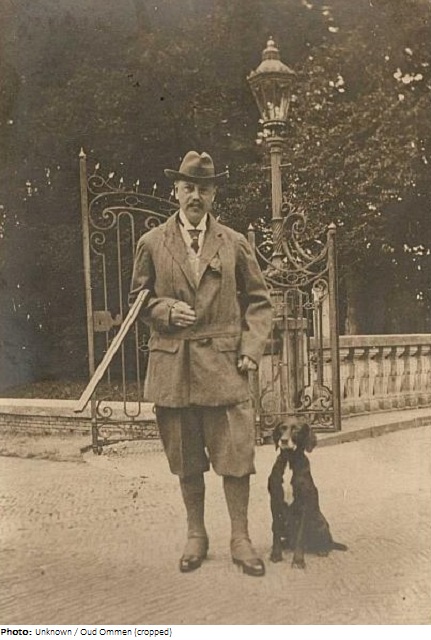
| Roles | Competed in Olympic Games |
|---|---|
| Sex | Male |
| Full name | Rudolph Theodorus•van Pallandt |
| Used name | Rudolph, Baron•van Pallandt |
| Born | 28 November 1868 in Oldebroek, Gelderland (NED) |
| Died | 15 March 1913 (aged 44 years 3 months 17 days) in London, England (GBR) |
| Title(s) | Baron van Pallandt, Heer van Eerde |
| NOC |  Netherlands Netherlands |
Although he competed in the Olympics in shooting, Rudolph, Baron van Pallandt had a short career as a top-level cyclist in the 19th century. In 1887 he was Dutch champion in the tandem sprint, and in 1888 he placed second in the Dutch road championship. Van Pallandt later became a politician, serving as a member of the Provincial States of the Province of Overijssel, and for three years (until his death) was a member of the First Chamber of the States General for the Christian Historic Union (a political party).
With his title Baron van Pallandt inherited the Eerde Castle, which had been purchased in 1706 by his ancestor, Johan Werner van Pallandt, Lieutenant General of the Netherlands. In the 19th century, the castle became a summer hunting retreat. Rudolph married but had no children and the title of Baron van Pallandt, Heer van Eerde went to his nephew, Philip, who inherited the Eerde Castle. Philip, Baron van Pallandt donated the castle to the Order of the Star in the East in 1924, an organization associated with the philosopher and spiritual teacher Jiddu Krishnamurti, whose teachings Philip followed. In 1933 Eerde Castle was made a refuge for Jewish children escaping Hitler’s threat, led by the Dutch Quaker Movement, and the retreat became known as The Quaker School. This continued until the Nazis took over the castle and used it as a German boarding school, and briefly held Russian prisoners there, when it was called Camp Erika.
| Games | Discipline (Sport) / Event | NOC / Team | Pos | Medal | As | |
|---|---|---|---|---|---|---|
| 1908 Summer Olympics | Shooting |  NED NED |
Rudolph, Baron van Pallandt | |||
| Trap, Men (Olympic) | ||||||
| Trap, Team, Men (Olympic) | Netherlands | 4 |